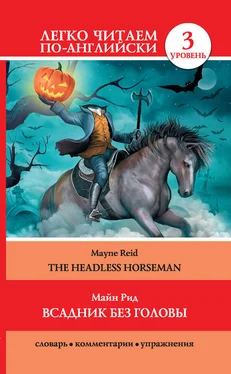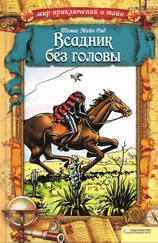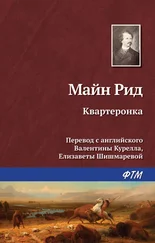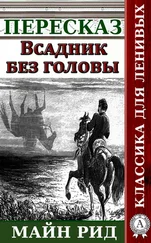Майн Рид. Всадник без головы / Mayne Reid. The Headless Horseman
Адаптация текста, составление упражнений, комментариев и словаря И. С. Маевской
© Маевская И. С., адаптация текста, упражнения, комментарии, словарь
© ООО «Издательство АСТ»
On the great plain of Texas, about a hundred miles southward from the old Spanish town of San Antonio de Bejar, the noonday sun is shedding his beams from a sky of cerulean brightness. Under the golden light appears a group of objects.
The objects in question are easily identified – even at a great distance. They are waggons. Slowly crawling across the savannah, it could scarce be told that they are in motion.
There’re ten large waggons, each hauled by eight mules; their contents are: plenteous provisions, articles of costly furniture, live stock in the shape of coloured women and children; the groups of black and yellow bondsmen, walking alongside; the light travelling carriage in the lead, drawn by a span of Kentucky mules, and driven by a black Jehu.
The train [1]is the property of a planter who has landed at Indianola, on the Gulf of Matagorda; and is now travelling overland.
In the cortège that accompanies it, riding at its head, is the planter himself – Woodley Poindexter – a tall thin man of fifty, with a slightly sallowish complexion, and aspect proudly severe. He is simply though not inexpensively dressed. His features are shaded by a broad-brimmed hat.
Two horsemen are riding alongside – one on his right, the other on the left – a stripling scarce twenty, and a young man six or seven years older. The former is his son – a youth, whose open cheerful countenance contrasts, not only with the severe aspect of his father, but with the somewhat sinister features on the other side, and which belong to his cousin.
There is another horseman riding near. The keel-coloured “cowhide” clutched in his right hand, and flirted with such evident skill, proclaim him the overseer.
The travelling carriage, which is a “ carriole”, [2]has two occupants. One is a young lady of the whitest skin; the other a girl of the blackest. The former is the daughter of Woodley Poindexter – his only daughter. The latter is the young lady’s handmaid.
The emigrating party is from the “coast” of the Mississippi – from Louisiana. The planter is not himself a native of this State. Woodley Poindexter is a grand sugar planter of the South; one of the highest of his class.
The sun is almost in the zenith. Slowly the train moves on. There is no regular road. The route is indicated by the wheel-marks of some vehicles that have passed before – barely conspicuous, by having crushed the culms of the shot grass.
Notwithstanding the slow progress, the teams are doing their best. The planter hopes to reach the end of his journey before night: hence the march continued through the mid-day heat.
Unexpectedly the drivers are directed to pull up, by a sign from the overseer; who has been riding a hundred yards in the advance, and who is seen to make a sudden stop – as if some obstruction had presented itself.
“What is it, Mr Sansom?” asked the planter, as the man rode up.
“The grass is burnt. The prairie’s been afire.”
“ Been on fire! Is it on fire now ?” hurriedly inquired the owner of the waggons. “Where? I see no smoke!”
“No, sir – no,” stammered the overseer, becoming conscious that he had caused unnecessary alarm; “I didn’t say it is afire now: only that it has been, and the whole ground is as black as the ten of spades.” [3]
“What of that? I suppose we can travel over a black prairie, as safely as a green one? What nonsense of you, Josh Sansom, to raise such a row about nothing!”
“But, Captain Calhoun,” protested the overseer, in response to the gentleman who had reproached him; “how are we to find the way?”
“Find the way! What are you talking about? We haven’t lost it – have we?”
“I’m afraid we have, though. The wheel-tracks are no longer to be seen. They’re burnt out, along with the grass.”
“What matters that? I reckon we can cross a piece of scorched prairie, without wheel-marks to guide us? We’ll find them again on the other side. Whip up, niggers!” shouted Calhoun, spurring onwards, as a sign that the order was to be obeyed.
The teams are again set in motion; and, after advancing to the edge of the burnt tract, are once more brought to a stand.
Far as the eye can reach the country is of one uniform colour – black. There is nothing green!
In front – on the right and left – extends the scene of desolation. Over it the cerulean sky is changed to a darker blue; the sun, though clear of clouds, seems to scowl rather than shine.
The overseer has made a correct report – there is no trail visible. The action of the fire has eliminated the impression of the wheels hitherto indicating the route.
“What are we to do?”
The planter himself put this inquiry, in a tone that told of a vacillating spirit.
“What else but keep straight on, uncle Woodley? The river must be on the other side? If we don’t hit the crossing, to a half mile or so, we can go up, or down the bank – as the case may require.”
“Well, nephew, you know best: I shall be guided by you.”
The ex-officer of volunteers with confident air trots onward. The waggon-train is once more in motion.
A mile or more is made, apparently in a direct line from the point of starting. Then there is a halt. The self-appointed guide has ordered it. He appears to be puzzled about the direction.
“You’ve lost the way, nephew?” said the planter, riding rapidly up.
“Damned if I don’t believe I have, uncle!” responded the nephew, in a tone of not very respectful mistrust. “No, no!” he continued, reluctant to betray his embarrassment as the carriole came up. “I see now. We’re all right yet. The river must be in this direction. Come on!”
Once more they are stretching their teams along a travelled road – where a half-score [4]of wheeled vehicles must have passed before them. And not long before: the hoof-prints of the animals fresh as if made within the hour. A train of waggons, not unlike their own, must have passed over the burnt prairie!
Like themselves, it could only be going towards the Leona. In that case they have only to keep in the same track.
For a mile or more the waggon-tracks are followed. The countenance of Cassius Calhoun, for a while wearing a confident look, gradually becomes clouded. It assumes the profoundest expression of despondency, on discovering that the four-and-forty wheel-tracks he is following, have been made by ten Pittsburgh waggons, and a carriole – the same that are now following him, and in whose company he has been travelling all the way from the Gulf of Matagorda !
***
Beyond doubt, the waggons of Woodley Poindexter were going over ground already traced by the tiring of their wheels.
“Our own tracks!” muttered Calhoun on making the discovery.
“Our own tracks! What mean you, Cassius? You don’t say we’ve been travelling—”
“On our own tracks. I do, uncle; that very thing. That’s the very hill we went down as we left our last stopping place. We’ve made a couple of miles for nothing.”
Embarrassment is no longer the only expression upon the face of the speaker. It has deepened to chagrin, with an admixture of shame. He feels it keenly as the carriole comes up, and bright eyes become witnesses of his discomfiture.
Читать дальше
Конец ознакомительного отрывка
Купить книгу








